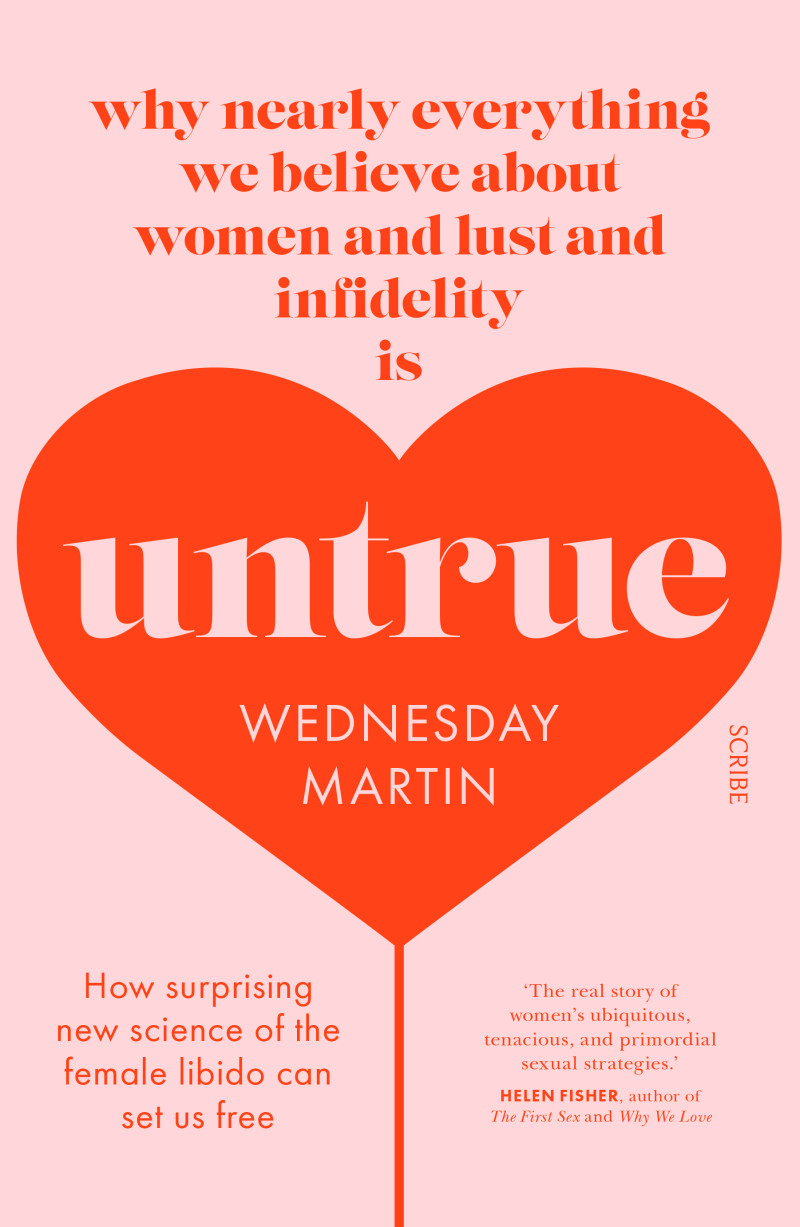Untrue and Female Sex Instincts
An anthropologist suggested that I read the book Untrue by Wednesday Martin for an example of a good treatment of modern thinking on evolved behavior, and I’m glad she did. The book has some great takes on sex instincts, particularly those involved in female “extra-pair coupling”, as the biologists call it. It’s not the first book I would recommend on evolution and sexuality, but I got a lot out of it.
Men of faith and men of science have long described women’s sexuality in limited terms, and Martin shows how wrong these simplistic views are. In civilizations east and west, men have defined a wife’s infidelity as a sin or a biological aberration. Martin demonstrates that extra-pair coupling is indeed part of the human female’s sexual repertoire. While women have been relentlessly programmed to be submissive and faithful wives, Martin shows that women have sex drives that send many wives seeking partners other than their husbands. The brain evolved for behavioral flexibility, and human behavior is facultative. That is, we have more behavioral routines that we ever use, and we use the ones that fit any given situation. Studying psychology in the 1980s, I was taught that society conditioned people so that socially constructed behavior patterns, such as gender roles, seemed natural. Untrue shows just how limited any such conditioning is, as women’s instinctive drives lead many of them to break the rules they were supposedly conditioned to internalize.
Western civilization, notes Martin, has tried to define women’s sexuality as passive, the supposed counterpart to the active male. But this passive role doesn’t stick, and in real life women are not passive but responsive. That’s a great clarification. Speaking personally, I prefer “responsive” to “passive”.
Biologists talk about “female choice”. Among mammals in particular, females invest so much of their own lives and energy in their young that they can be choosy about which males impregnate them and thereby get a “free ride” on all their blood, sweat, and milk. In historical civilizations, however, families have exercised oppressive control over their daughters’ choices. Female choice is on full display when Martin discusses Ashley Madison, the web site for wives who wanted to cheat. The women on that site were able to specify, sometimes down to penis size, the sorts of lovers they would consider taking.
In evolutionary terms, it pays off for a female mammal to mate with a high-status male, since doing so increases the odds that one’s sons will achieve high status. That behavior is called called hypergamy, and in human society it commonly appears as women “marrying up”. In fairy tales, the commoner girl marries the prince. Martin provides us with great example of hyergamy with the housewives of the 50s and 60s who carried on affairs with their husbands’ superiors. Eventually, the women left their lower-status husbands in favor of their new, higher-status mates. So much for being programmed to passivity.
For the readers who might think that gender roles can be constructed any which way without regard to universal human predispositions, Martin cites anthropologist Agustin Fuentes as saying that there are indeed half a dozen instances of gender-role differences that are universal among humans.
Untrue has a lot more details, such as the author’s visit to a “skirt party” for adventurous women, but my take-away is the power of primeval instincts in the face of modern attempts at socialization.
Sex at Dawn, by Christopher Ryan and Cacilda Jethá: Untrue shows that sexual instincts make themselves felt in today’s society, and Sex at Dawn covers a more explicitly evolutionary take on the topic. Martin mentions this book, and I’ve recommended it before, but I hear that science people aren’t impressed with it, so haven’t been recommending it lately.
The Red Queen, by Matt Ridley: This book is my top recommendation for the science of sex, including bacteria, millipedes, parasites, and more. I hoped it would be a good overview of humanity’s evolved sexuality, but it is way more than that. More people should read this book.

No comments:
Post a Comment
Note: Only a member of this blog may post a comment.